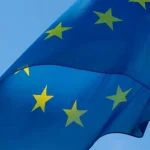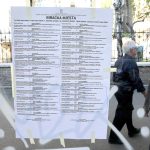As Jadranka Dozan/Poslovni Dnevnik writes, the energy crisis and ongoing high inflation has forced the national governments of the majority of EU member states to implement various generous packages of fiscal incentives, from various subsidies and one-off benefits to reductions in VAT rates. As rising inflation followed the coronavirus pandemic, some enacted as temporary measures until coronavirus no longer pised an economic threat were prolonged, and some new ones were also introduced, primarily related to energy and food.
For many of these measures, which were conceived as temporary as mentioned above, the deadlines finally expire in the next few months, and among them are the shock absorbers that the Croatian Government introduced for gas and electricity prices in the spring and autumn package of measures last year. As things stand, it’s realistic to expect new prolongations throughout the EU as a bloc, in the same form or with some modifications. The global overviews regularly published by the VATcalc portal, specialised in VAT, are also on that same track.
Belgium, for example, has already converted last year’s temporary VAT reduction from 21% to 6% into a permanent one for electricity, natural gas and other supplies in heating systems, and excise tax reforms have also been announced. Under the influence of double-digit inflation, Greece extended their reduced VAT rates on certain goods from 24% down to 13%, which is already the fourth extension of the temporary rate reduction introduced during the coronavirus pandemic. Currently, the duration of this measure is planned until the middle of this year.
At the same time, already this fall, the German Government, along with the introduction of temporarily reduced VAT rates on gas (from 19% down to 7%) until the end of March 2024, also extended the application of the lower VAT rate for catering and hospitality establishments for the second time. From the end of 2022, it was extended until the end of this year.
Although statistics suggest a slowdown over the last two or three months, inflation is simply still very high. Last year, 16 out of a total of 27 EU member states ended the year with double-digit rates (in Hungary, Lithuania and Latvia, they were above 20%), and almost as a rule – wage growth trotted quite far behind the rising prices. Very soon, the Croatian Government will also announce a new framework or a possible extension of the measures regarding electricity and gas prices.
At the end of next month, the deadline for applying the lowest VAT rate of 5% to natural gas deliveries, for which as part of last year’s April package of measures for Croatia, the rate was permanently reduced from 25% to down 13%, and exceptionally temporarily – down to a mere 5%.
As part of Croatia’s autumn package, a scheme was designed to limit or mitigate the rise in electricity prices for households, the public and non-profit sector, and enterprises, also with the now looming date of March the 31st, 2023 as the expected deadline. It remains to be seen what the solutions will look like from April on, i.e. whether the 5% rate for gas and the existing price limit model for electricity will only be left as it is until a new deadline is drawn up.
However, given the drop in standards (despite nominal growth, the average salary in Croatia has fallen by 5% in real terms over the past year), as well as the fact that an election year is coming, it is easy to assume that issues related to peoples’ living standards will gain additional importance. This also facilitates a better state of public finances compared to recent expectations. According to the latest consensus forecast by FocusEconomics, until recently, analysts expected a deficit of around 2% of GDP in 2022. However, it seems that the beneficial effect of inflation (especially with a good summer tourist season) on filling the budget was significantly stronger.
More specifically, in a weekly overview of selected economic and financial topics, the chief economist of the Croatian Association of Employers (HUP), Hrvoje Stojic, stated that Croatia “had returned to the budget surplus zone, namely 1.1% of GDP in the consolidated general government budget”. This ranks Croatia among only three EU member states that have improved their budget balance compared to the pre-crisis year of 2019.
Admittedly, the surplus in the budget is primarily highlighted by HUP within the wider context of the question of the expediency of introducing an additional income tax and the generally high tax burden compared to the rest of the EU.
For more, make sure to check out our dedicated news section.










